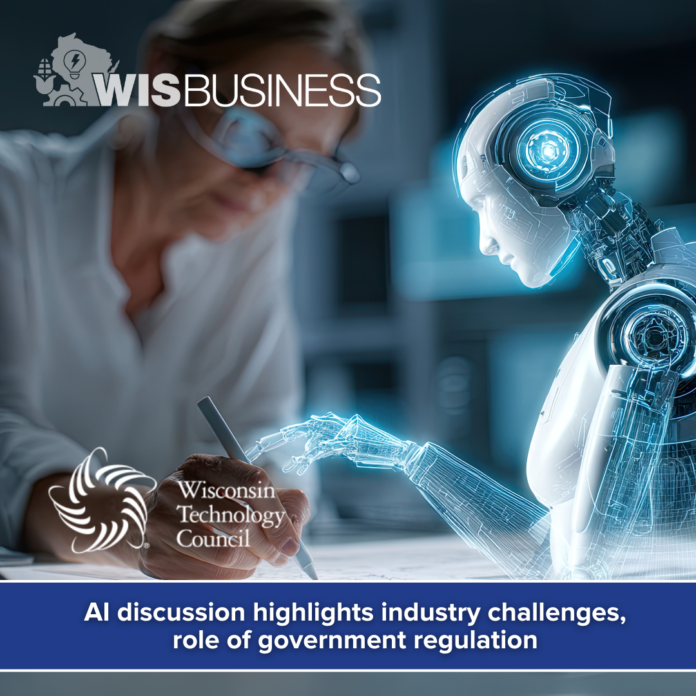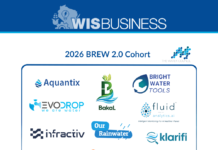An expert says executive pressure to deploy AI is a problem for industry as the technology is increasingly seen as essential for competitiveness.
Sahab Aslam, founder of Vectorify Labs and the AI sector lead at the Harvard Business School Alumni Angels of New York, was a featured speaker during yesterday’s Wisconsin Technology Council luncheon in Madison.
She said there’s been a departure from “all the testing and the rigor we used to do before” as company leaders seek to meet business objectives around AI.
“Sometimes it’s just like, we’ve got to do it, otherwise we’re going to be behind,” said Aslam, who’s also a graduate faculty member in data science at the University of California, Berkeley. “And it’s a little bit different kind of urgency than solving a problem.”
As businesses race to keep up, she said less time is being spent on determining if a given application is “the right use” of AI.
“Enterprise no longer is spending time on that,” Aslam said.
Yesterday’s discussion also explored the role of government regulation of AI, with Rep. Adam Neylon calling for a balanced approach that acknowledges the limits of policymakers’ understanding. Neylon, R-Pewaukee, is the vice-chair of the Assembly Committee on Jobs and Economy.
“You also don’t want to be too proscriptive, or put too much regulatory burden on companies that want to be innovative, and doing things that are above the level of knowledge that some of the regulators in Madison even have,” he said. “So I think that could cause potential unintended consequences when you try to step in and regulate things that … we’re still trying to work through.”
Still, he said the government should play a role in regulating AI, noting his previous work on legislation related to the technology’s use in political campaign advertising. He also said consumer protection issues and health care applications for AI are “low-hanging fruit” for regulatory policy in Wisconsin.
But Neylon also raised concerns about a “patchwork” of state-level AI laws tripping up companies, arguing the federal government or Congress should enact national regulations for the technology.
Meanwhile, Wisconsin AI Safety Initiative Director Will Anderson emphasized the transformative impact that AI will have on the economy, pointing to even more profound shifts on the horizon.
“It’s going to be tremendously, tremendously impactful and we need to navigate this very carefully,” he said yesterday.
Aslam noted AI can help “level the playing field” by reducing knowledge barriers for business leaders and entrepreneurs, and Neylon agreed.
“The people that are able to utilize this technology are able to build things and scale things and do things that would take teams, right, take money, take infrastructure, and now you’re able to build something, create something from nothing with these tools that we have,” he said. “So I think it’s really going to change the level of productivity in people.”







